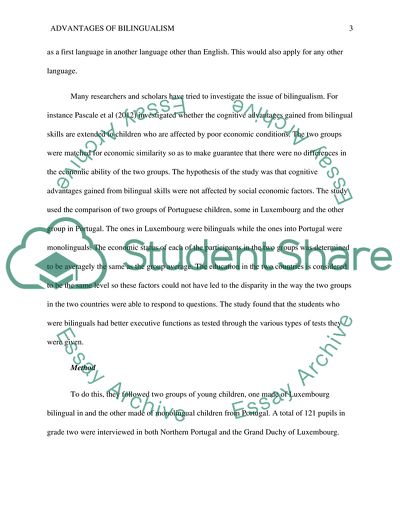Cite this document
(Language Development: Advantages of Bilingualism Term Paper Example | Topics and Well Written Essays - 2250 words, n.d.)
Language Development: Advantages of Bilingualism Term Paper Example | Topics and Well Written Essays - 2250 words. https://studentshare.org/psychology/1815663-language-development-advantages-of-bilingualism
Language Development: Advantages of Bilingualism Term Paper Example | Topics and Well Written Essays - 2250 words. https://studentshare.org/psychology/1815663-language-development-advantages-of-bilingualism
(Language Development: Advantages of Bilingualism Term Paper Example | Topics and Well Written Essays - 2250 Words)
Language Development: Advantages of Bilingualism Term Paper Example | Topics and Well Written Essays - 2250 Words. https://studentshare.org/psychology/1815663-language-development-advantages-of-bilingualism.
Language Development: Advantages of Bilingualism Term Paper Example | Topics and Well Written Essays - 2250 Words. https://studentshare.org/psychology/1815663-language-development-advantages-of-bilingualism.
“Language Development: Advantages of Bilingualism Term Paper Example | Topics and Well Written Essays - 2250 Words”. https://studentshare.org/psychology/1815663-language-development-advantages-of-bilingualism.


